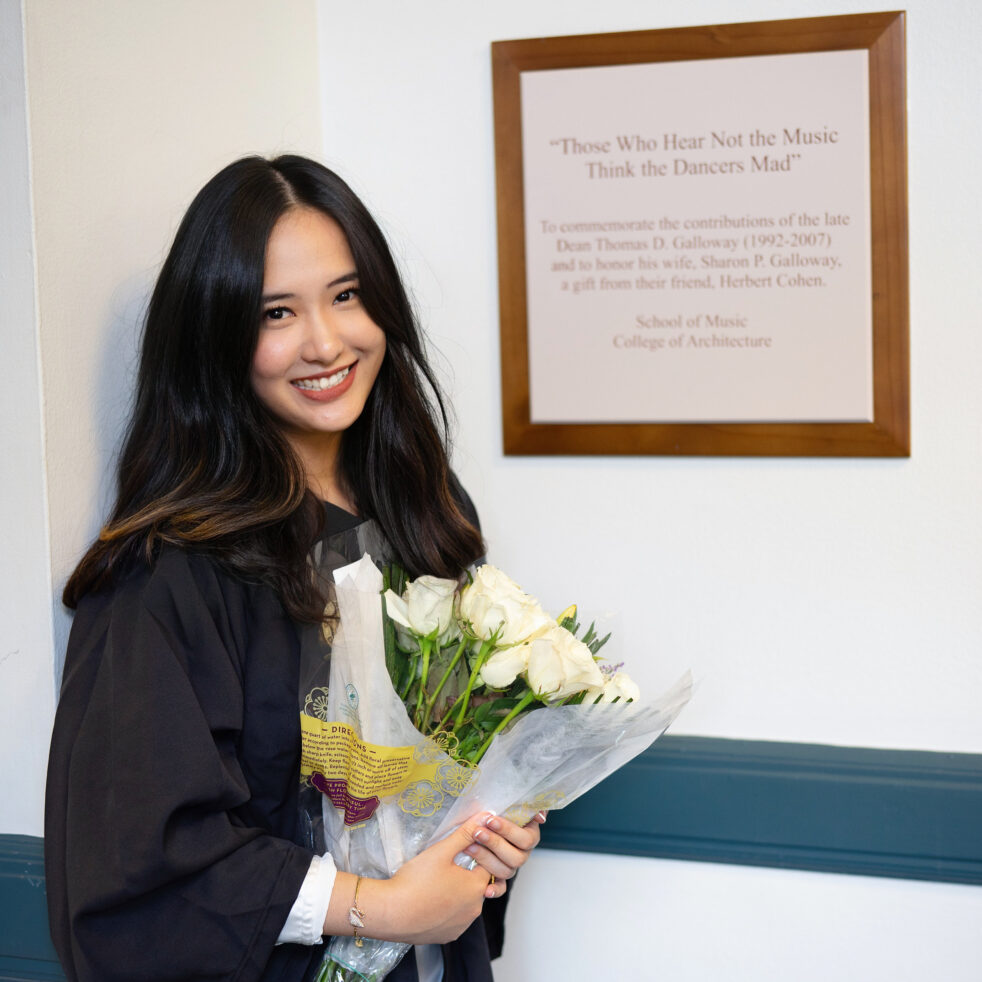Women in Music Technology (WiMT) aims to help students fine-tune their artistic passions with technological innovation through community outreach and campus events. The Technique spoke with Qianyi Rose Sun, second-year graduate MT and the current president of WiMT.
Sun, along with Rosa Westfall and Sophia Mehdizadeh, chartered WiMT in 2021 after the organization died down during the pandemic. It had previously been founded in 2016 by two masters students in MT, Léa Ikkache and Anna Xambó. They wanted to increase the number of female students enrolled in the relatively young major.
“Our mission is different from when it first started. Now, our mission is mainly to help women and other marginalized groups thrive in the technology field by creating the space for them to socialize, share information and to support each other. I think a lot of our activities fit well within these three categories,” Sun said.
The events hosted by WiMT aim to contribute to the growth of new technologies by creating a community that supports the involvement and recognition of women.
“The activities that we do the most often are peer-sharing workshops and guest speakers. For the workshops at the School of Music and in the music technology program, everybody comes from different backgrounds, so everybody just kind of wants to learn from everybody, so we thought that we could provide a platform for them to do that,” Sun said on the program’s support system.
Peer-sharing workshops are hosted by students who want to present or share a topic of choice, music related or not. Sun recounts one from last year’s Halloween, where participants programmed Arduino boards to compose and create themed spooky sounds connected to motion sensors.
Sun also invites various guest speakers from both industry and academic backgrounds to host talks with the organization. Some have included people from Tech’s own faculty and more informal talks with creative musicians. One that she is currently organizing for later this semester is a panel with an engineer who works with Spotify.
“We’re also engaged in research and projects that contribute to the field in general, whenever we have little funding to fund women to go to like conferences [or] whenever you have a side project that you really want to do or whatever experiment where they need people to sign up, you just holler within the community and then we come help,” Sun said.
The WiMT’s community-centered spirit is one of the reasons why active engagement is important and successful for the organization. This is not just limited to the border of Tech, however, as WiMT also emphasizes nurturing and supporting the local community and younger students.
“One other thing we care about is inspiring the next generation of women scholars because we were all inspired by our women mentors … every year we have a table at the Guthman Music, Art and Technology Fair [which] is part of the Atlanta Science Festival and a lot of K-12 students attend, and we’ll always just be there to inspire them with many possibilities in music tech,” Sun said.
While music programs and clubs, such as the Georgia Tech Glee Club, have had a long history on Tech’s campus, the degree program is relatively new, with the Master of Science in Music Technology being approved in 2006. Arts and technology are often seen as opposite ends on the academic spectrum, but the Music Technology program proves otherwise.
“It’s the intersection between creative pursuits, like music, and technology that could be used to help people understand, learn and consume music. I think it is really a diverse field because it’s kind of on the cusp of everything, and it really depends on what you wanna pair. If you want to pair music with mechanical engineering, then you get robotic musicianship, where you build a lot of really cool robots. If you pair it with electrical engineering that you get digital signal processing … and you deal a lot with audio information. And if you pair it with CS, then you get music information retrieval where it’s trying to get information and then building audio software like Apple Music or Spotify,” Sun said.
The endless possibilities of fusing different aspects of music and technology together make way for a truly versatile and specialized field. WiMT organizes with the objective to give individuals with creative visions a chance to share, learn and expand these ideas beyond the traditional settings most often seen in academia.
“I feel like a lot of us would like a creative outlet or just an urge to share with other people or an urge to learn from other people, but a lot of a lot of the time you cannot really do that in class or just with your research, so we always try to provide this certain platform for them,” Sun said.
WiMT is not limited to students in the Music Technology program. Unlike other major or department-specific Tech organizations, it is open to all who have a passion for music and learning more about pushing boundaries.
“Whoever loves music, if they want to perform, if they want to share something, we’re definitely open to just these general things and happy to talk to them about it,” Sun said.
Aside from workshops, guest speakers and other special events, WiMT holds monthly general body meetings for all. Students can learn more on Engage.
